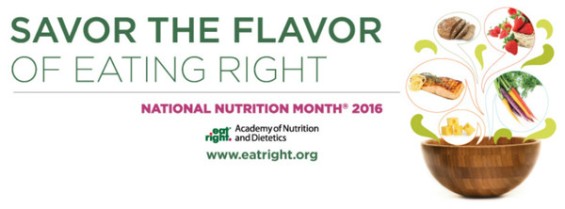It will be alright, trust me.
Hello there! As promised, today’s post is dedicated to how you can enter the field of dietetics at any stage of life, no matter what you’re area of expertise may be. It’s not an easy path, and it will be costly, but in the end if it’s truly what you want to do – well, then go for it!
If there’s one thing this transition has taught me, it’s that things do work out eventually. Even if it takes a little bit longer than expected. As long as you’re confident about the choices you’ve made, and are determined to do what you want to do, you’ll make it.
Don’t mind me over here. Sometimes I have to give myself pep talks.
In my running theme of honesty, being a grad student has been one of the scariest, most insecure times of my life. That’s your twenties for ya (am I right fellow twenty-somethings?). So when I came to the end of my time as a student in biology and realized that nothing in the field really interested me, I panicked. Briefly. It was half way through my senior year when I determined I really wanted to go into nutrition. After years of bouncing through different career options, this was when I finally found a path that I felt I would fall in love with.
That’s when I realized just how much work you had to do to even become a dietitian. How the heck was I supposed to do this?
Great question.
Because I already had a bachelor’s degree I was not particularly keen on going back to school for a second bachelor’s. After a bit of hard researching I was able to find a program that would allow me to achieve a master’s of science in nutrition, as well as the dietitian certification. My program allows me to complete the track I mentioned in last week’s post (here) in three years (four in my case since I want a master’s). Two years will be spent completing the DPD program (only a year and a half left at the moment!), after which I will apply to an internship (and hopefully get in!), complete my internship in another year, and take my test (becoming a certified dietitian!). After that, I will complete my master’s in nutrition in another year because this program is set up where the internship and master’s flow together, and only an additional year is needed.
It was not the easiest feat to find a program, but I do promise they are out there! Google became my best friend for awhile (who am I kidding, Google is always my best friend). Another really great resource was the Academy of Nutrition and Dietetics website. They have a master list of all the accredited programs in the nation. A particularly helpful bonus was the ability to narrow down the list based on location, type of degree granted, and type of program (online or on-campus). Some have a coordinated master’s and DPD approach – which does take less time – and I applied to those schools as well, but the one I chose worked out better for me in the end.
The most interesting part about it is that I’m not really a traditional student anymore. And all of us “post-baccs” are in such unique and different situations that it’s been really fantastic meeting everyone and learning from their different life experiences. In a way I’m glad that I didn’t decide to go into nutrition five or six years ago (I still can’t believe it’s been that long). Despite the extra cost and stress, I think in the end I’ll get more from my experience now than I would have if I was a traditional student. It’s a richer learning environment, which I’m starting to appreciate as I get older.
So if you’re working your way through a bachelor’s in any field and you’ve found that nutrition is actually the path you wish to take, don’t fret! I’m finding now that having a bachelor’s in biology has been exceptionally helpful. Not only do you have to take several science-based courses throughout any nutrition program, but the support courses are all science (biology, anatomy, biochemistry, etc.). With all the science background I have, I’m feeling confident in plenty of my courses. Here are some helpful tips from my own experiences:
- Start looking at accredited nutrition programs and find out what classes you would be required to take, especially the supporting science courses, stats, etc.
- Take these courses, if you can, at your undergraduate college.
- Finding programs that have some sort of combination really helps minimize the extra time you’ll have to be in school to achieve that RD credential.
- To really determine if nutrition is right for you, think about doing some volunteer work in a variety of settings – I’ll talk more about this later, but it really does help.
I hope this helps those of you who may be facing a similar struggle to mine. In the end it works out, so just remember that as long as you’re determined you will achieve it!
And now for a little added humor…

Question of the week: what do you think the impact of truthfully labeling food products would be on the average consumer?


